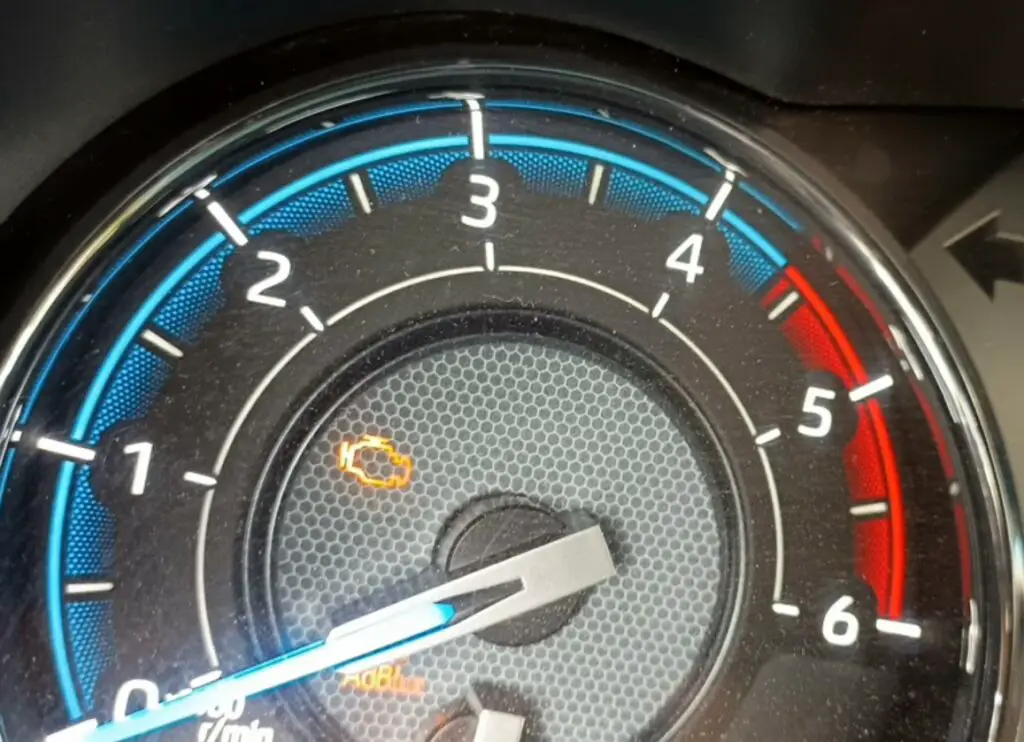The check engine light on your dashboard is an important indicator that monitors the health of your car’s engine. Many drivers have experienced that familiar sinking feeling when it illuminates. But what does it mean when the check engine light flashes and then goes off? This question might seem simple, but the answer can actually be quite complex. This article aims to answer the question “What does it mean when your check engine light flashes then goes off?” The article will clarify this scenario by delving deep into the mechanics behind the check engine light, discussing what causes it to flash, and then demystifying the reasons why it might go off. Let’s equip you with the knowledge you need to understand your car better and ensure its optimal performance.
The Function of The Check Engine Light
The check engine light, also known as the Malfunction Indicator Light (MIL), is an integral part of your car’s On-Board Diagnostic (OBD) system. It’s primarily designed to alert you when something is wrong with your vehicle’s engine or related systems. Think of it as a messenger delivering news about your vehicle’s health, albeit sometimes the news is a bit cryptic.
When everything is in good shape, your check engine light should remain off. However, when a problem is detected, the light will illuminate. It could either stay lit continuously, indicating a non-urgent issue, or it could flash, which generally signifies a more severe problem. When your check engine light comes on and then goes off, it can leave you in a quandary. Why did it flash, and why did it stop? Let’s break down the possibilities.
Understanding the Flashing Check Engine Light
A flashing check engine light is your car’s way of saying, “I need immediate attention.” It usually indicates a severe issue that could potentially harm your vehicle if not addressed promptly. For example, the light might flash if there is a severe engine misfire, which allows unburned fuel to be dumped into the exhaust system.
To illustrate, let’s use a 2012 Honda Accord as an example. Imagine you’re driving down the road, and all of a sudden, the check engine light starts to flash. The car feels a bit jittery, and the engine doesn’t sound right. This could be due to an engine misfire, possibly caused by a worn spark plug or a faulty fuel injector. The unburned fuel going into the exhaust system can raise the temperature of the catalytic converter, potentially leading to its damage and expensive repairs.
Why Does The Check Engine Light Go Off?
Now, let’s address the other part of the question: why would a check engine light that was flashing suddenly go off? This is typically due to one of two reasons. Either the issue was temporary and has resolved itself, or the problem still exists but is not being detected by the OBD system at that particular moment.
Suppose you’re in a 2015 Ford Explorer, and the check engine light flashes, indicating a misfire. But after a few moments, it goes off. The misfire could have been due to water in your fuel from a recent gas station visit. As the water is burned off and exits the system, the misfire resolves, and the light goes off.
In another scenario, you might have a sporadic problem like a loose gas cap. In a 2020 Chevrolet Malibu, for instance, the check engine light might flash if the gas cap is loose or not properly secured. This might result in a momentary drop in fuel system pressure. However, once you tighten the cap or it finds its proper seating due to vibration, the light goes off.
What Should You Do?
When your check engine light flashes and then goes off, it’s crucial to not ignore it. While the light going off might be a relief, the flashing indicates a potentially serious issue that should not be overlooked.
In a scenario involving a 2018 Toyota Camry, let’s say the check engine light flashes due to an engine misfire but then goes off. Even if the light is off, don’t ignore the event. It would be advisable to have your vehicle inspected by a professional mechanic. They can pull up the error codes stored in the OBD system, which can provide clues to what caused the light to flash.
Conclusion
In conclusion, when your check engine light flashes and then goes off, it’s a signal from your car that something could be wrong. Whether it’s a misfire or a loose gas cap, such an event should not be overlooked. Always consult with a trusted mechanic when your check engine light behaves in this manner. The health of your car—and your wallet—could depend on it. The key takeaway here is never to underestimate the importance of your check engine light. It’s not just an indicator, but a guardian that helps keep your vehicle running smoothly and efficiently.
